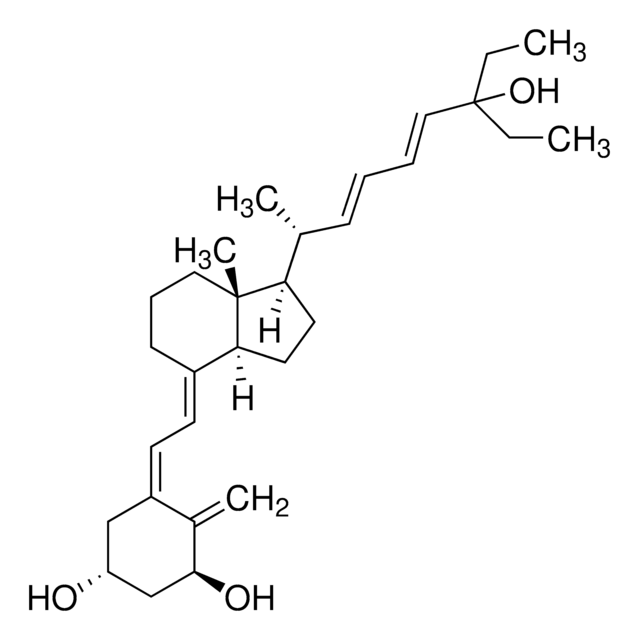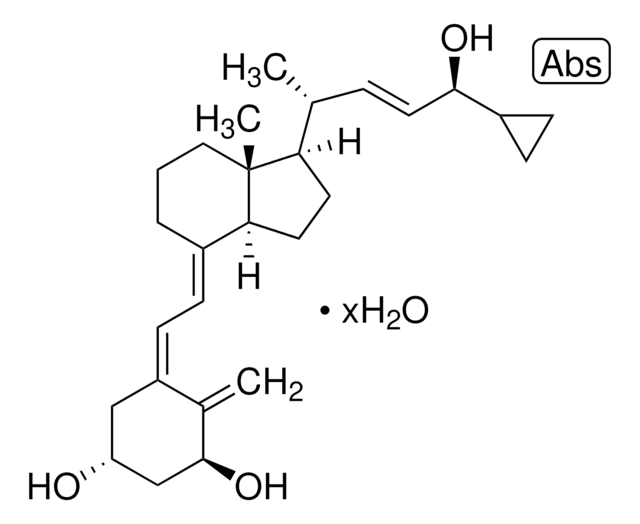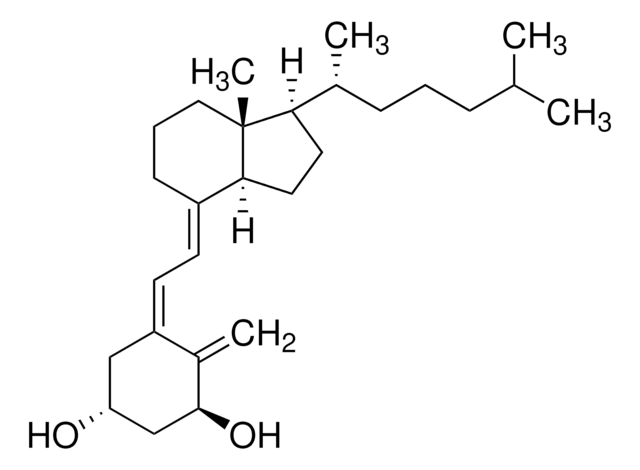C0225000
Calcitriol
European Pharmacopoeia (EP) Reference Standard
Synonym(s):
1α,25-Dihydroxyvitamin D3, 1α,25-Dihydroxycholecalciferol, Calcitriol
About This Item
Recommended Products
biological source
sheep wool (grease)
grade
pharmaceutical primary standard
agency
EP
API family
calcitriol
form
solid
manufacturer/tradename
EDQM
technique(s)
gas chromatography (GC): suitable
liquid chromatography (LC): suitable
application(s)
pharmaceutical (small molecule)
format
neat
storage temp.
−20°C
SMILES string
[H][C@@]1(CC[C@@]2([H])C(\CCC[C@]12C)=C\C=C3\C[C@@H](O)C[C@H](O)C3=C)[C@H](C)CCCC(C)(C)O
InChI
1S/C27H44O3/c1-18(8-6-14-26(3,4)30)23-12-13-24-20(9-7-15-27(23,24)5)10-11-21-16-22(28)17-25(29)19(21)2/h10-11,18,22-25,28-30H,2,6-9,12-17H2,1,3-5H3/b20-10+,21-11-/t18-,22-,23-,24+,25+,27-/m1/s1
InChI key
GMRQFYUYWCNGIN-NKMMMXOESA-N
Gene Information
human ... VDR(7421)
Looking for similar products? Visit Product Comparison Guide
General description
Calcitriol is a biologically active metabolite of vitamin D, formed via hydroxylation of calcidiol in the kidney.
Application
Biochem/physiol Actions
Packaging
Other Notes
related product
signalword
Danger
hcodes
Hazard Classifications
Acute Tox. 1 Oral - Acute Tox. 2 Dermal - Acute Tox. 2 Inhalation - STOT RE 1
Storage Class
6.1A - Combustible acute toxic Cat. 1 and 2 / very toxic hazardous materials
wgk_germany
WGK 2
flash_point_f
Not applicable
flash_point_c
Not applicable
Choose from one of the most recent versions:
Certificates of Analysis (COA)
Sorry, we don't have COAs for this product available online at this time.
If you need assistance, please contact Customer Support.
Already Own This Product?
Find documentation for the products that you have recently purchased in the Document Library.
Customers Also Viewed
Our team of scientists has experience in all areas of research including Life Science, Material Science, Chemical Synthesis, Chromatography, Analytical and many others.
Contact Technical Service














